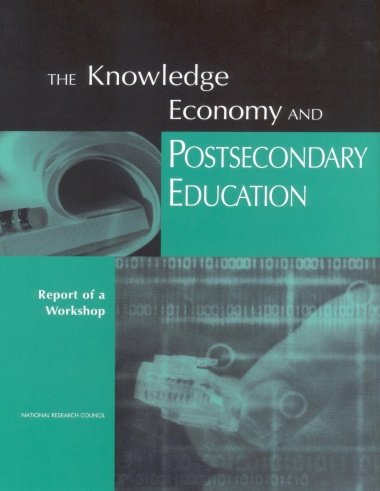The Workshop on the Knowledge Economy and Postsecondary Education documents changes seen in the postsecondary education system. In her report Lisa Hudson focuses on who is participating in postsecondary education; Tom Bailey concentrates on community colleges as the most responsive institutions to employer needs; Carol Twigg surveys the ways that four-year institutions are attempting to modify their curricular offerings and pedagogy to adapt those that will be more useful; and Brian Pusser emphasizes the public's broader interests in higher education and challenges the acceptance of the primacy of job preparation for the individual and of "market" metaphors as an appropriate descriptor of American higher education. An example of a for-profit company providing necessary instruction for workers is also examined.
Richard Murnane, Nancy Sharkey, and Frank Levy investigate the experience of Cisco high school and community college students need to testify to their information technology skills to earn certificates. Finally, John Bransford, Nancy Vye, and Helen Bateman address the ways learning occurs and how these can be encouraged, particularly in cyberspace.
- Cover
- Front Matter
- Workshop Report: The Knowledge Economy and Postsecondary Education
- 1 Demographic and Attainment Trends in Postsecondary Education
- 2 Community Colleges in the 21st Century: Challenges and Opportunities
- 3 The Impact of the Changing Economy on Four-Year Institutions of Higher Education: The Importance of the Internet
- 4 Higher Education, the Emerging Market, and the Public Good
- 5 A Role for the Internet in American Education? Lessons from Cisco Networking Academies
- 6 Creating High-Quality Learning Environments: Guidelines from Research on How People Learn
- Appendix A: Workshop Agenda
- Appendix B: Workshop Participants

